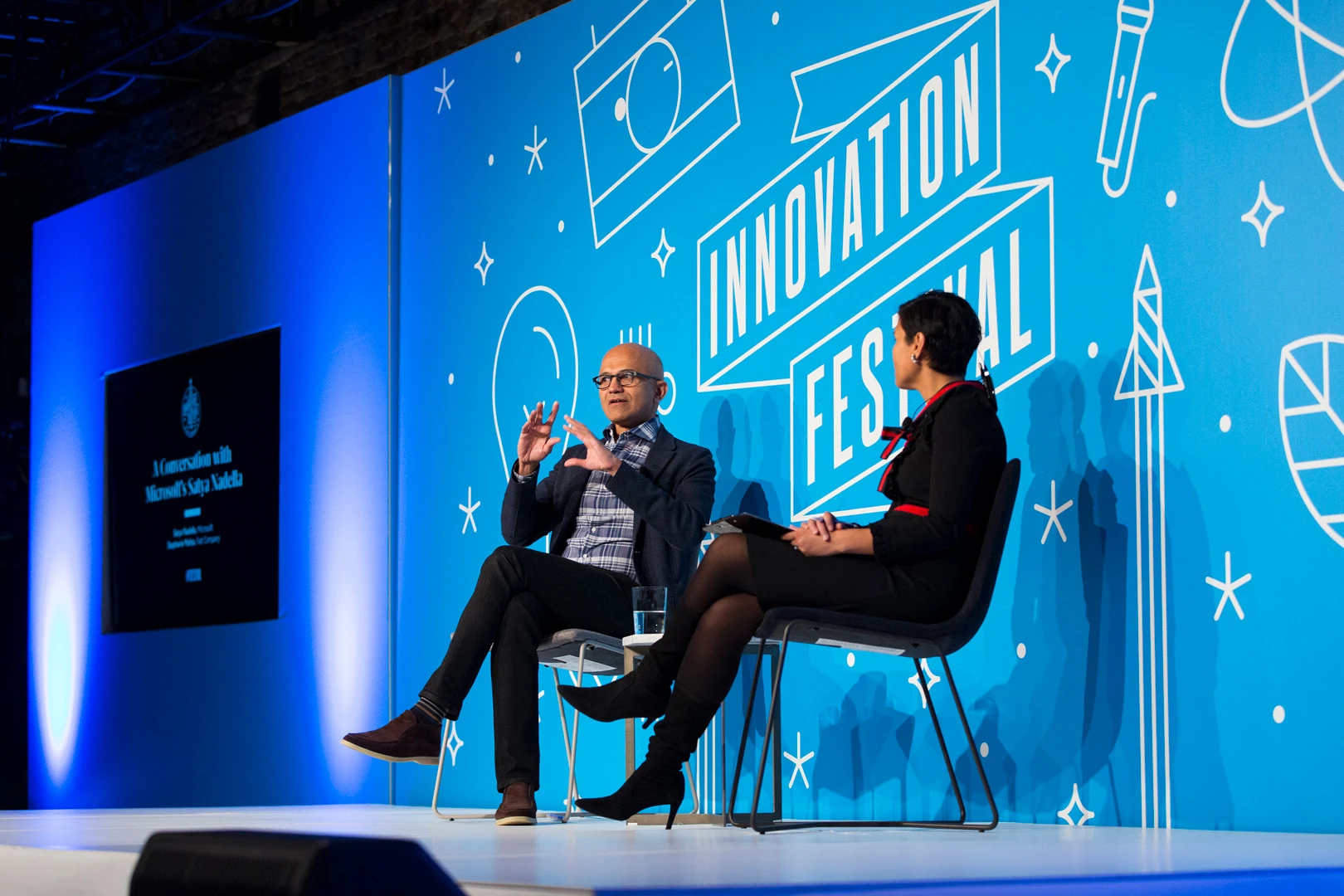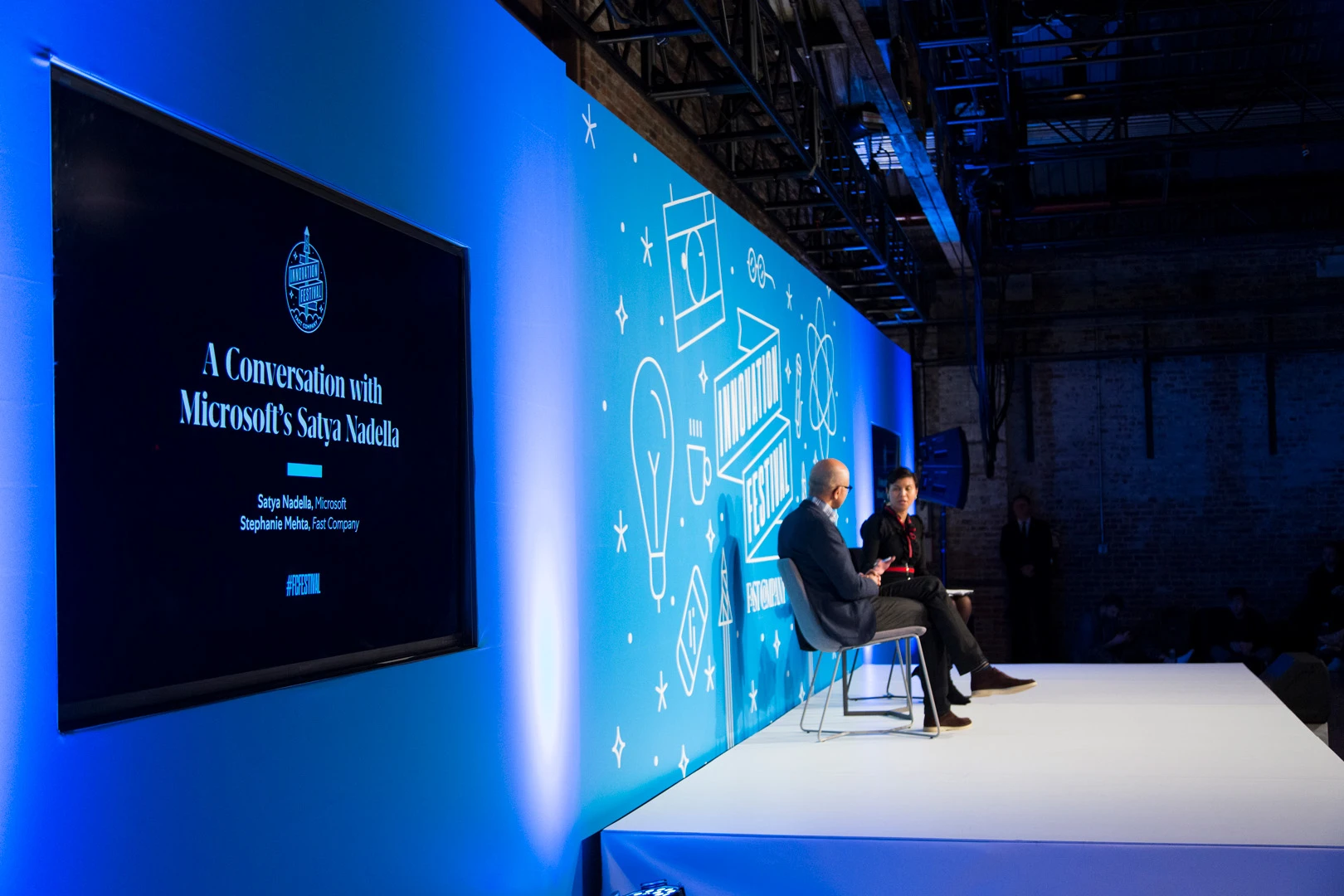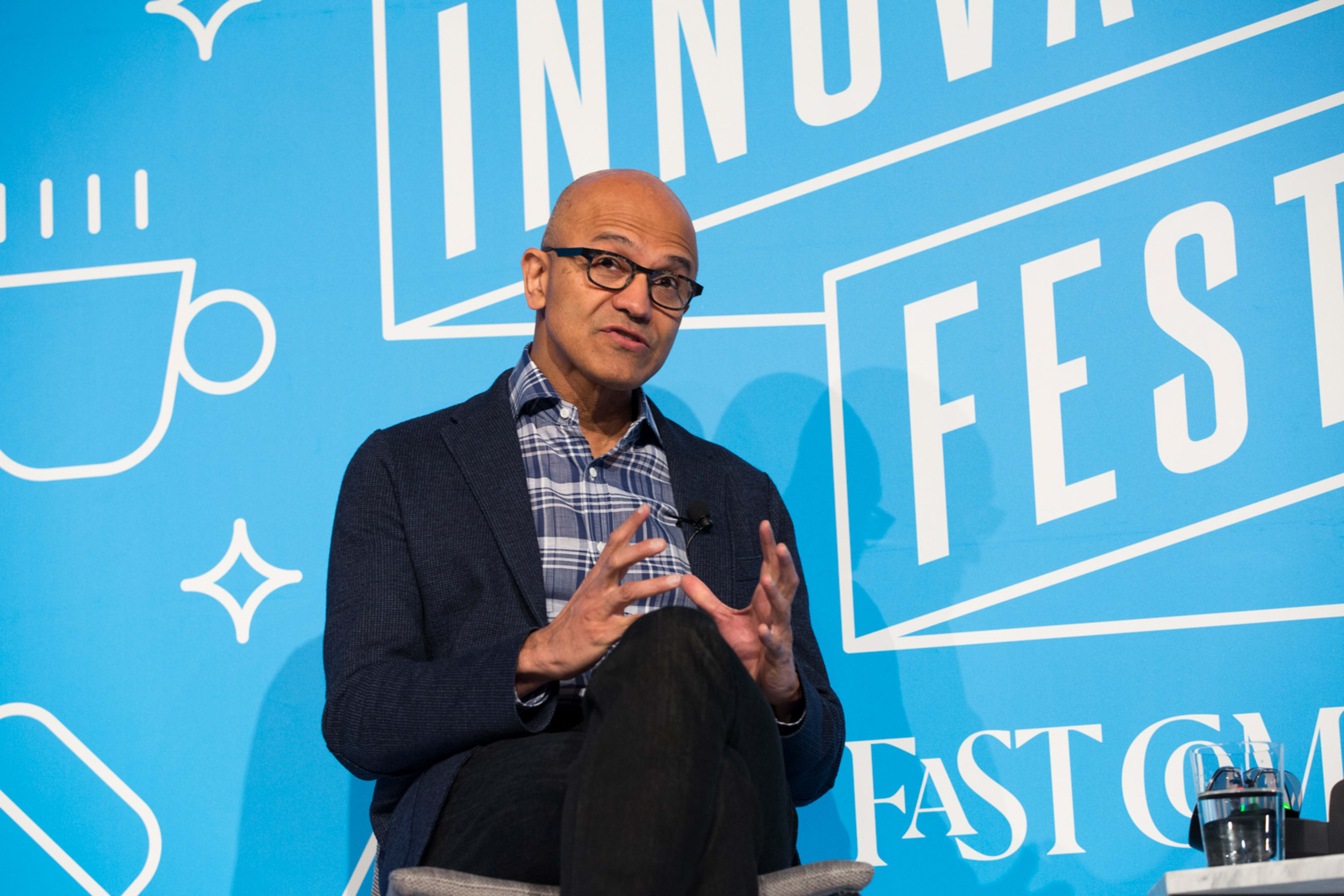Next February 4, Satya Nadella will mark his sixth anniversary as Microsoft’s CEO—not that long in comparison to his predecessors, Bill Gates and Steve Ballmer, but enough time to have put his own mark on the company. By just about any benchmark, his tenure has been a success, as measured by a market cap that has surpassed $1 trillion and made Microsoft, at times, the most valuable public company in the world.
Except Nadella believes that it’s terribly dangerous to fixate on financial measures such as market cap as an indicator of success. And he speaks from the experience of having lived through the first period when Microsoft became the world’s most valuable company, a few years after he joined in 1992.

“I remember the time,” he told Fast Company editor-in-chief Stephanie Mehta during their conversation at the Fast Company Innovation Festival in New York City on Thursday morning. “People would walk around, those of us who had joined in the early ’90s, and think, ‘Oh, we must be very good. Look at us and look at our market cap.’ And that’s always the beginning of the end: when you start somehow thinking that you are God’s gift to mankind and you aren’t grounded in what initially drove your success.”
“Inspired by that time is why I say we need to go from ‘know-it-all’ to ‘learn-it-all,'” he added. “That’s the way we talk about our culture.”
“We want to commoditize digital tech”
Microsoft never stopped being a profit machine, but in this century, it did live through a period when the conventional wisdom about it became that its best, most relevant years were in the past. That was before Nadella rebooted its culture with a strategy that was both forward- and backward-looking. On the one hand, he has placed big bets on new areas—cloud, mobile, augmented reality—and pulled back from Windows-centric thinking. But instead of abandoning the company’s historic strengths, he has also zeroed in on its mission of creating useful tools that democratize technology—a pursuit that has kept it busy ever since Gates and cofounder Paul Allen started writing programming languages in the 1970s.
“Remember, Microsoft was a company that was founded by building the BASIC interpreter for the Altair,” he said. “And so our goal for anyone, whether it’s a retailer, whether it’s a manufacturer or a healthcare company, if they’re all wanting to be software companies, [we] want to commodotize digital tech.”

Microsoft’s most newsworthy recent customer success is its $10 billion deal to sell software and services to the Department of Defense as part of the DoD’s JEDI (Joint Enterprise Defense Infrastructure) initiative. Even before the company inked the agreement, the transaction proved controversial among Microsoft employees, some of whom published an open letter urging the company not to bid on a contract whose purpose involved the waging of war as overseen by the Trump administration.
Mehta’s first questions during the session were about the contract and reaction within the company. Nadella emphasized that Microsoft employees should always feel empowered to push back. “We pay deep attention to where they’re coming from, what’s causing their concern, because I think that’s super important,” he said. Ultimately, however, “as an American company, we want to make sure that our best and greatest technologies are available to those institutions that we have elected to protect our freedom.”
Mehta also asked if another constituency—shareholders—was concerned with the company’s efforts to help deal with issues in its home region of Seattle, which like other locales with concentrations of tech workers, has seen the less affluent population get squeezed out of neighborhoods where they once thrived. Early this year, Microsoft committed to investing $500 million in affordable housing in the area. “Microsoft needs employees,” replied Nadella. “Employees live in communities. Communities need hospitals. Communities need schools. . . . Investors are willing to go long.”
“We love to create new languages”
As Nadella and Mehta’s conversation turned to specific Microsoft products, services, and technologies, the chatter emphasized new frontiers rather than traditional cash cows. (I don’t think either of them mentioned Windows once.) Nadella touted the HoloLens 2 AR headset, which began shipping this week, and showed a video of Microsoft executive Julia White using it to create a hologram of herself speaking Japanese in a real-time transcription of her English-language speech. “We’re excited about what it entails for a lot of human communications,” he said, apparently unfazed by Mehta’s comparison of the demo to a Black Mirror episode.
In past presentations that referenced AI, Nadella has made some pretty dark allusions of his own, comparing the technology’s dystopian possibilities to 1984 and Brave New World. At the Innovation Festival, he argued that companies such as Microsoft are responsible for steering AI in the right direction through actions such as creating tool kits for removing bias, as well being open-minded about legislative measures. “Sometimes we abdicate control over AI, as if it’s just writing itself,” he said.
When Mehta brought up Google’s recent assertion to have achieved “quantum supremacy”—by performing a task on an experimental quantum computer that would have been impossibly slow using a conventional computer—Nadella did not quibble with Google’s controversial claim even though Microsoft has its own ambitious quantum research project. Instead, he called the quantum era an opportunity for Microsoft as a tool provider (“We love to create new languages”) and plugged the company’s quantum programming language, Q#. He also noted that the quantum era would require him to brush up his own skills (“everything I learned in computer science is not very relevant”).
Toward the end of their conversation, Mehta noted the Fast Company community’s love of productivity advice and asked Nadella if he could share any hacks he uses to manage his own exceptionally busy schedule. (He managed to make time for the Innovation Festival even though it overlapped with a conference of Microsoft’s own, Ignite, where he’d keynoted earlier in the week.)
Nadella had a ready answer: “One of the things we sometimes confuse is all things we should be doing versus all the things that only you could do.” Focusing on the latter, he says, is “a filter that has been super helpful for me.”
Which is not to say that Nadella has all the answers off the top of his head, or is only confronted by issues that demand his particular expertise. “Somebody will complain about Word not doing what they expected it to do, which I’m sure I won’t have the answer to,” he explained. “But at least I can go find out.”
Recognize your brand’s excellence by applying to this year’s Brands That Matter Awards before the early-rate deadline, May 3.
